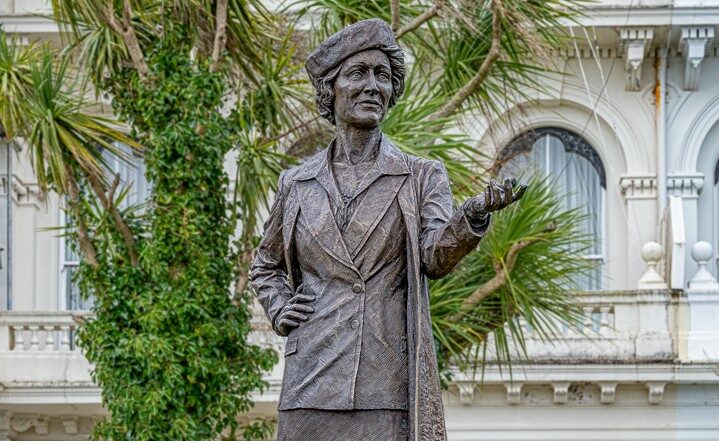While huge leaps have been made in terms of social equality over the past 100 years, gender representation remains a major issue at all levels of UK politics.
Research by Dr Jacqui Turner at the University of Reading on Nancy Astor, who in 1919 became the first female MP to sit in the House of Commons, is now being used to encourage recognition, celebration and communication of the range, scope and impact of women’s contributions to modern politics.
Turner’s research involved in-depth exploration of material from the Astor archive at the University of Reading. Her findings have informed public tours and exhibitions in the Palace of Westminster and for the National Trust at the Astor home at Cliveden; and have contributed to the addition within the Committee Corridor of the House of Commons of a plaque commemorating Nancy Astor – the only female presence in that space.
Turner’s work also inspired a successful crowdfunding campaign to erect the UK’s first public statue of a female MP, the 2018 unveiling of which caused widespread controversy and fuelled debate about the way in which political pioneers are recognised and celebrated.
In 2019, Turner’s research underpinned a series of academic and public engagement activities delivered under the umbrella of ‘Astor 100’ to celebrate the centenary of Nancy Astor taking her seat in Parliament. These activities, including a social media exhibition and a website designed to explore and facilitate discussion about issues faced by female MPs throughout history, have offered a fresh perspective on the ongoing role of women in politics.
Find out more
Astor 100 – research project website
Celebrating 100 years of women in Parliament (unveiling of Astor statue, Dec 2019)
The Long Read: Nancy Astor – pioneering, problematic and feminist by default (Nov 2019)
View the full impact case study on the REF 2021 website: Raising the presence, profile and voice of women in Parliament and politics with the Nancy Astor centenary events – Astor 100

